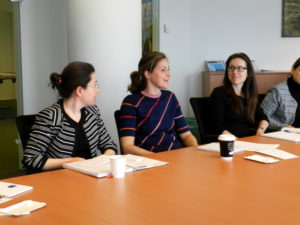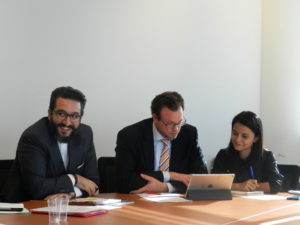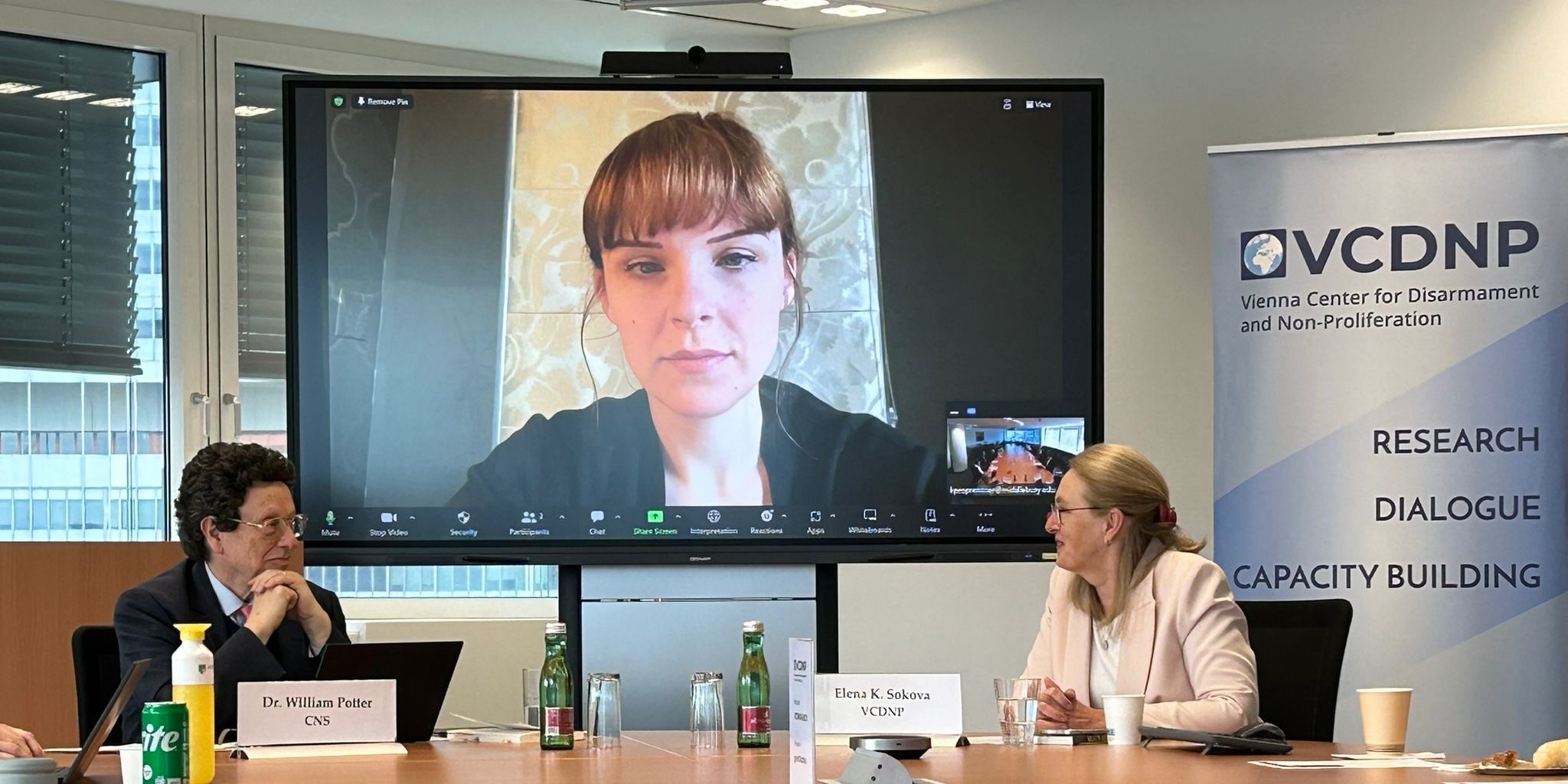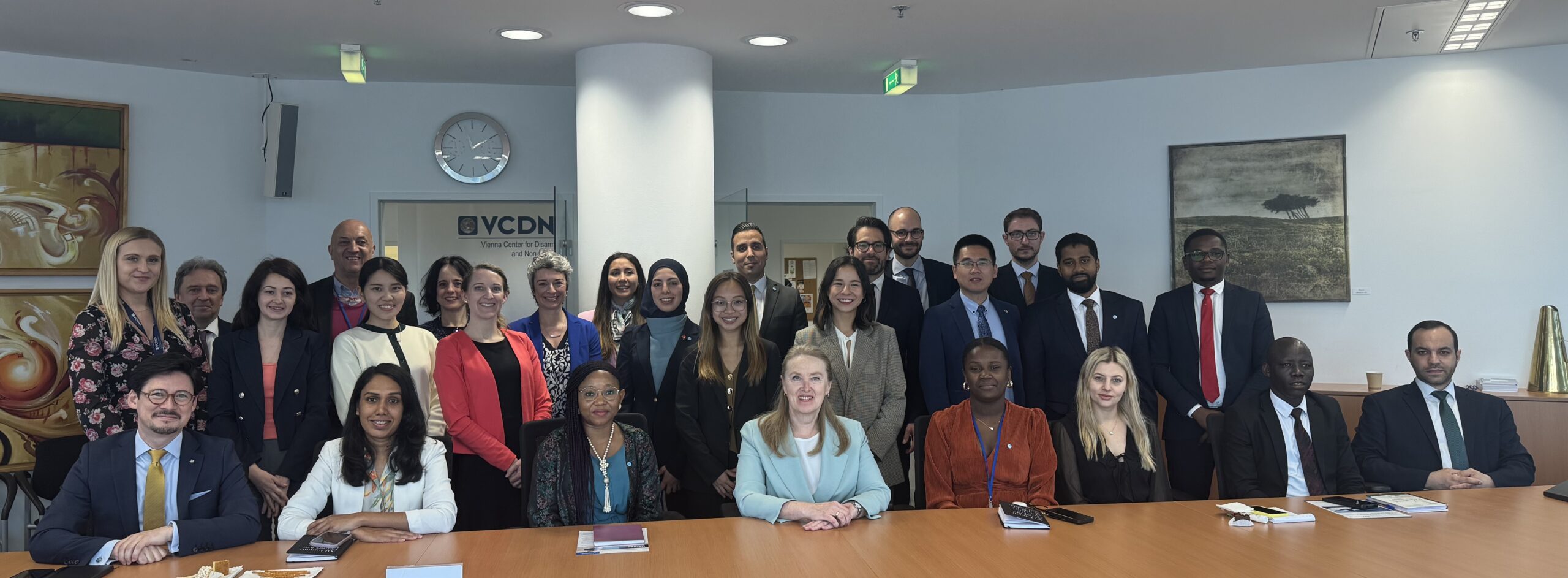
The VCDNP and the James Martin Center for Nonproliferation Studies (CNS) held its seventeenth bi-annual intensive short course on nuclear non-proliferation and disarmament in Vienna, Austria, from 18 to 22 March 2019. The VCDNP welcomed 27 diplomats and officials from government agencies, permanent missions and international organizations who represented 25 States from Africa, Asia, the Middle East, Europe, South America and other regions. Many of the participants represented their State missions in Vienna and Geneva, while others traveled from their national capitals. Women made up 45 percent of the participants and 50 percent of lecturers and guest speakers.

The course is designed to provide an intensive one-week overview of the nuclear non-proliferation regime, its history, constituent elements and current status, as well as an introduction to nuclear disarmament and arms control. Lecturers placed emphasis both on theoretical and practical aspects of the nuclear non-proliferation regime providing a comprehensive overview of the complexities and current challenges. A wide range of topics were covered including: the Treaty on the Non Proliferation of Nuclear Weapons (NPT); the International Atomic Energy Agency (IAEA) and nuclear safeguards; the Comprehensive Nuclear-Test-Ban Treaty; export control regimes and illicit nuclear trade; nuclear weapons policy; and international disarmament initiatives. The participants were also shown how satellite imagery and other new tools and technologies can be used for monitoring and verification of nuclear-related activities.
 The course included a public panel discussion that assessed the current status, prospects and challenges of establishing a Zone Free of Weapons of Mass Destruction in the Middle East. The event, hosted by the Permanent Mission of Japan to the International Organizations in Vienna, featured panelists Ambassador Mohamed Samir Koubaa (League of Arab States in Vienna), Ambassador David Hall (United-Kingdom), Ambassador Mikhail Ulyanov (Russian Federation) and Dr. Hanna Notte (The Shaikh Group).
The course included a public panel discussion that assessed the current status, prospects and challenges of establishing a Zone Free of Weapons of Mass Destruction in the Middle East. The event, hosted by the Permanent Mission of Japan to the International Organizations in Vienna, featured panelists Ambassador Mohamed Samir Koubaa (League of Arab States in Vienna), Ambassador David Hall (United-Kingdom), Ambassador Mikhail Ulyanov (Russian Federation) and Dr. Hanna Notte (The Shaikh Group).
Participants also attended a panel discussion on the sustainable use of nuclear material and radioactive sources for peaceful purposes. The participants had the opportunity to engage with the panelists Ambassador Laercio Vinhas, former Permanent Representative of Brazil to the IAEA, Ann Mensah from Ghana’s regulatory authority and Akhter Shahid, Chief Coordinator of the Nuclear Security and Physical Protection System of Bangladesh’s nuclear power programme. These experts provided information on their respective countries’ efforts to securely manage nuclear material and other radioactive sources and related facilities. They also highlighted the support they received from the IAEA and other countries.
 In addition to in-class presentations, course participants were given an opportunity to visit the IAEA Incident and Emergency Centre, the IAEA Safeguards Laboratory and the Comprehensive Nuclear-Test-Ban Treaty Organization’s (CTBTO) International Data Centre and International Monitoring System. The half day field trip allowed the participants to interact with experienced professionals at both organizations and enhanced their understanding of the technical aspects of safeguards verification and nuclear test monitoring.
In addition to in-class presentations, course participants were given an opportunity to visit the IAEA Incident and Emergency Centre, the IAEA Safeguards Laboratory and the Comprehensive Nuclear-Test-Ban Treaty Organization’s (CTBTO) International Data Centre and International Monitoring System. The half day field trip allowed the participants to interact with experienced professionals at both organizations and enhanced their understanding of the technical aspects of safeguards verification and nuclear test monitoring.
A number of experts and senior officials from the Vienna-based international organizations and missions gave presentations during the course, including Jasmin Craufurd-Hill (Institute for Regional Security), Sandra Muñoz (IAEA), Danielle Dahlstrom (former IAEA), Lukasz Kulesa (Polish Institute of International Affairs) and Dr. Francesca Giovannini (CTBTO). The VCDNP and CNS lecturers included Dr. William Potter (CNS), Laura Rockwood (VCDNP), Gaukhar Mukhatzhanova (VCDNP), David Schmerler (CNS) and Dr. Ian Stewart (King’s College).
View the course agenda here.
 The VCDNP encouraged participants to share their own professional experiences and to learn from each other. In this regard, the Center engaged previous course alumni in a roundtable discussion followed by a social, which proved to be an invaluable opportunity to learn how multilateralism works in practice and served as a great networking opportunity.
The VCDNP encouraged participants to share their own professional experiences and to learn from each other. In this regard, the Center engaged previous course alumni in a roundtable discussion followed by a social, which proved to be an invaluable opportunity to learn how multilateralism works in practice and served as a great networking opportunity.
On the last day of the course, participants engaged in a group debate activity. Divided into teams, they presented arguments for and against: (1) making the conclusion of both a comprehensive safeguards agreement and the additional protocol a precondition for new nuclear supply agreements; and (2) the Treaty on the Prohibition of Nuclear Weapons contributing to the implementation of Article VI of the NPT and achieving nuclear disarmament. The activity allowed participants to look at issues from a different point of view and better understand other
States’ positions.
At the end of the course, participants completed an anonymous evaluation where they could assess different aspects of the short course and provide suggestions for improvement. Overall, participants found the course to be very useful in providing insightful information that they could utilize in their professional careers.
Below are some of the comments provided by participants (quoted as written):
‘’Really good and comprehensive overview of the field and an excellent start into the disarmament and non-proliferation world!’’
‘’As a Vienna-based official, this course has widened my understanding and practical assessment of the nuclear issues. I would encourage all to take it.’’
‘’The course is extremely useful for new diplomats handling IAEA matters including nuclear disarmament. It provides excellent insights and a reflection of the [Agency’s] work.”
‘’Extremely useful not only because of the theoretical framework but also the practical implications.’’
‘’Thank you for highlighting the value women can add to these issues, the different perspectives, the human angle.’’
This course is made available thanks to the generous support of the Norwegian Ministry of Foreign Affairs, the Ministry of Foreign Affairs of the Netherlands, the Carnegie Corporation of New York and the John D. and Catherine T. MacArthur Foundation.



